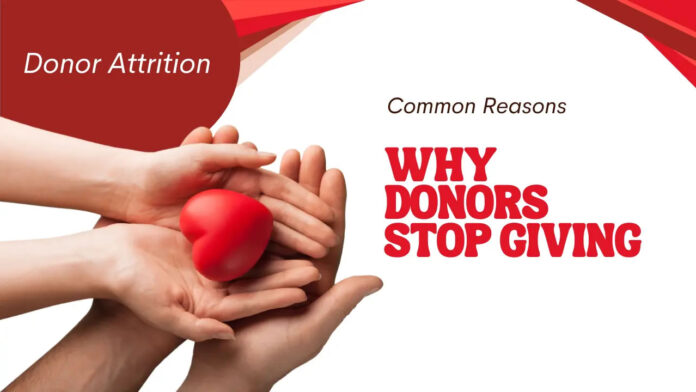Zimbabwe’s non-governmental organisations (NGOs) are bracing for a severe blow as the Netherlands government implements a new policy to slash €2.4 billion from its development aid budget, following a similar move by the United States under former President Donald Trump. The cuts, slated to take effect in 2027, are expected to result in significant job losses and the termination or reduction of funding for crucial programmes.
The Dutch decision replicates the abrupt foreign aid slash witnessed under the Trump administration, which has already had a devastating impact on Zimbabwe’s HIV response. The new policy will affect funding for areas such as gender equality, vocational and higher education, sport, and culture. Funding for climate action, civil society, and UN organisations will also be reduced.
Dutch Minister for Foreign Trade and Development, Reinette Klever, stated that her country’s interests would take precedence in the development policy. “All the programmes we fund must contribute directly to our own interests: promoting trade, enhancing security and reducing migration,” Klever said.
The Netherlands, through its embassy in Harare, provides aid to Zimbabwe, focusing primarily on supporting human rights defenders, promoting gender equality, addressing climate change, and fostering economic development. Beneficiaries of this aid include Zimbabwe Lawyers for Human Rights, Green Impact Centre, The Bioskop! Short Film Competition, Zimbabwe Women Lawyers Association, My Trees Trust, HeForShe, and Birdlife Zimbabwe.
“The government will also use development aid as a way to boost security in various conflict regions surrounding Europe: West Africa, the Horn of Africa, the Middle East and North Africa. This should help avoid disruption to trade, combat the rise of terrorist or criminal organisations and prevent people applying for asylum in the Netherlands. Food shortages, for example, are a cause of conflict,” Klever explained. “Giving people future prospects in those regions will enable them to build livelihoods, meaning they won’t have to make the journey to Europe. The government wants to make agreements with migration countries, aimed at combating migration and encouraging return,” she added.
The impending cuts have left thousands of employees in Zimbabwe’s NGO and civil society organisation (CSO) sectors in a state of uncertainty. The earlier freeze on foreign aid by former US President Donald Trump forced many organisations to send workers home, leaving them unsure about their future employment and livelihoods.
Zimbabwe is home to thousands of NGOs and CSOs, many of which rely heavily on funding from the US and other international donors. These organisations operate across various sectors, including humanitarian aid, service delivery, and political governance.
According to the 2019 Labour Force and Child Labour Survey by the Zimbabwe National Statistics Agency, the NGO sector employs 17,643 people, accounting for 1.2% of the country’s formal workforce. However, some estimates suggest the sector could be the second-largest employer in Zimbabwe after the government.
Employees who spoke to the news crew on condition of anonymity expressed their anxiety over the sudden freeze. “We are in a difficult position. We don’t know what will happen after the 90 days,” one worker said. Another added, “I also do not know where I will get money for rentals since our salaries were also frozen.” Many workers have been instructed to surrender vehicles and gadgets belonging to their organisations, further compounding their distress.
The abrupt cessation of USAID funding, a direct consequence of the implementation of former U.S. President Donald Trump’s “America First” policy, has already plunged Zimbabwe’s HIV response into a state of crisis. The temporary closure of truck-stop clinics and the scaling back of services at crucial health centres across the country have triggered widespread alarm, raising the spectre of a resurgence in HIV infections, particularly among high-risk populations such as long-distance truck drivers, sex workers, and other vulnerable communities.
For years, these clinics have served as a vital lifeline, providing essential HIV prevention, testing, and treatment services in border towns, high-traffic areas, and underserved communities. They have been instrumental in reaching individuals who might otherwise lack access to critical healthcare, offering a range of services including HIV testing and counselling, antiretroviral therapy (ART), pre-exposure prophylaxis (PrEP), condom distribution, and screening and treatment for sexually transmitted infections (STIs).
The “America First” policy, which prioritises domestic developments and emphasises “reasonable use of taxpayer’s money,” has resulted in a significant reduction in US foreign aid, impacting billions of dollars in funding for local civil society organisations (CSOs) and development programs worldwide. The impact on Zimbabwe has been particularly devastating, given the country’s heavy reliance on US funding to combat the HIV/AIDS epidemic.
The impact of these service disruptions is already being felt by vulnerable communities across the country. Rumbidzai, a sex worker from Epworth in Harare, has been taking antiretroviral drugs since 2017 and has relied on mobile clinics for over two years to access her medication and other essential services. Now, with the mobile clinics vanished, she fears for her life. “I don’t want to die — my children are still young. Who will take care of them?” she says, requesting only her middle name be used due to concerns about stigma.
Chipo, an outreach worker who has served sex worker communities since 2015, echoes Rumbidzai’s concerns. “The sex workers are crying; they are afraid of dying,” she says. She estimates that mobile clinics in Harare alone serve nearly 6,000 sex workers, all of whom are now left scrambling for basic health care.
The combined impact of the Dutch funding cuts and the earlier US policy changes threatens to undermine Zimbabwe’s progress in various sectors, including health, human rights, and economic development, leaving vulnerable populations at greater risk.












